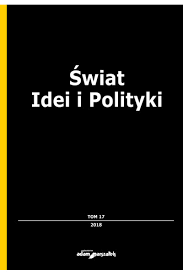Przestępczość zorganizowana w Polsce po 1989 r. - Pruszków i Wołomin
The organized crime in Poland after 1989 - Pruszkow and Wolomin
Author(s): Szymon WasielewskiSubject(s): Government/Political systems, Political behavior, Corruption - Transparency - Anti-Corruption, Peace and Conflict Studies
Published by: Wydawnictwo Adam Marszałek
Keywords: crime; transformation; system; mafia; Poland
Summary/Abstract: The collapse of the Eastern Bloc in 1989 has led to meaningful social, political and economic transformations. The destabilization of polish country, during changes in political system, started the development of the organized crime, abusing the authority and investigative authorities’ weakness. The 90’s are the greatest time of two, coming from Warsaw, groups, which managed to subordinate the whole criminal country – Pruszkow and Wolomin. The “mafi a decade” of Pruszkow and Wolomin is the time of: earning enormous fortune, spectacular events and extremely bloody war, carrying a huge number of victims. 90’s is also the time of using experience in creating eff ective system of fi ghting against organized crime. Introducing in 1997 the term of crown witness – “apologetic criminal” became the decisive moment. Spectacular end of Pruszkow was the eff ect of the statement of crown witness – gangsters aggravating their cooperatives. It is all mostly about Jaroslaw Sokolowski, nickname “Masa”. His statement appeared crucial during investigations at the most important members of Pruszkow’s group. Sokolowski`s “fl awlessness” as a crown witness, is not clear, in spite 20 years lasted from mentioned incident. The case of Pruszkow and Wolomin presents the danger for country`s safety, what comes from the side of organized crime, during political transformation.
Journal: Świat Idei i Polityki
- Issue Year: 17/2018
- Issue No: 1
- Page Range: 310-330
- Page Count: 21
- Language: Polish

